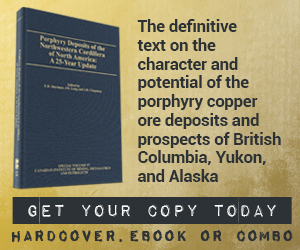Library Magazine Articles Professional geoscience in Ontario: common myths and misconceptions
Professional geoscience in Ontario: common myths and misconceptions
Andrea Waldie - Nov 2008
Love it or hate it, the licensure of professional geoscientists in Ontario is here to stay and is a legal requirement for practicing geoscience. In fact, all the provinces and territories (except PEI and the Yukon) have a licensure requirement. However, over the last several years some misconceptions, miscommunications and misunderstandings have emerged.
This article will address some myths and misconceptions within the context of Ontario legislation, that is, The Professional Geoscientists Act, 2000 (S.O. 2000, Chapter 13). Although much of what is indicated in this article will hold true across Canada, there are slight variations in the Acts and Regulations of each province and territory.
I don’t sign reports, so I don’t need to be registered as a professional geoscientist.
There is often a belief that since one is not filing reports or acting as a qualified person, one does not need to be registered to practice geoscience. This misconception may be partly the result of the fact that The Professional Geoscientists Act, 2000 came into existence at about the same time as National Instrument 43-101. NI 43-101 governs a company’s public disclosure of scientific and technical information about its mineral projects and recognizes numerous national and international organizations/designations acceptable as one of the criteria for acting as a qualified person. Separate from the conditions of NI 43- 101, in order to legally practice geoscience, it is a requirement to register within the province or territory in which you work.
In Ontario, The Professional Geoscientists Act, 2000 indicates:
“Practice of professional geoscience
- (1) An individual practices professional geoscience when he or she performs an activity that requires the knowledge, understanding and application of the principles of geoscience and that concerns the safeguarding of the welfare of the public or the safeguarding of life, health or property including the natural environment [2000, c. 13, s. 2 (1)]
Practice
- (1) An individual shall not practice professional geoscience unless he or she is a member of the Association and practices in accordance with the terms, conditions and limitations imposed on his or her membership [2000, c. 13, s. 3 (1)].”
Therefore, in order to practice geoscience in Ontario, an individual must be a registered member of the Association of Professional Geoscientists of Ontario. There are some exemptions, such as: an individual who is engaged in activities that are confined to prospecting within the meaning of the Mining Act; a student who is under the supervision of a P.Geo. or P.Eng. qualified to conduct geoscience; or a recent university graduate who is obtaining his/her required four years of geoscience work experience under the guidance of a P.Geo. or P.Eng. qualified to conduct geoscience.
I’m registered in another province or territory, so I’m already a professional geoscientist and can practice in Ontario.
Unfortunately, this is not the case, although it simplifies the process of registering in Ontario. Each province and territory, with the exceptions of PEI and the Yukon, is governed by its own geoscience act and regulations. In order to practice geoscience in each jurisdiction in Canada, an individual must be registered in that jurisdiction and abide by the act and regulations for that jurisdiction.
I’m an AusIMM member and therefore can work anywhere in Canada.
This myth seems to have arisen due to the similar timing of NI 43-101 becoming law and implementation of The Geoscientists Act, 2000. AusIMM is one of the numerous recognized foreign associations for the purpose of fulfilling one of the criteria to be a qualified person under NI 43-101. Membership in this or any other foreign geoscience association does not qualify an individual to practice geoscience in Ontario; one must be a registered member of the APGO.
I am a technician. Do I need to be registered as a professional geoscientist?
No. Some geoscience activities may be carried out as part of the work of a technician or technologist trained in aspects of the geosciences who may be working independently, but whose work is conducted with close reference to pre-established standards and norms and is supervised by a professional geoscientist.
Professional geoscience registration helps to protect the public, the environment and the reputation of the profession of geoscience. It calls for a certain standard for entry to the profession and allows for a peer review process, should an issue arise. Through the diligence of our members and member volunteers, we aim to build a proud and honourable profession.
About the Author
Andrea Waldie is the executive director and registrar of the Association of Professional Geoscientists of Ontario. Prior to joining the APGO, Andrea spent over 20 years in the mineral exploration and mining industry consulting for national and multinational, major and junior mining exploration companies.

.png)
